|
|
Switch off from the plug point
Whenever we leave a plug point ‘ON’ after switching an electrical appliance ‘OFF’ with the remote, power is still being consumed in ‘stand-by mode’.
And no small amount either – these little wastages account for an unbelievable 5% of the city’s power consumption. You will agree that's a sheer
waste. So, after usage, let's switch off our ACs, TVs, washing machines, microwaves, geysers and mobile chargers from the plug point. Every single
time.
It is up to each one of us to make the change
- if you will, India will save Electricity |
| |
|
|
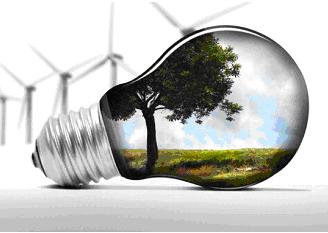
Light Bulb |
|
Lighting
- Switch off lights and fans when not required.
- Replace bulbs with tube lights & CFL(Compact Flourescent Lamps) or LED Lights.
- Utilise natural light by using electronic chokes & regulators.
- Optimise use of lights in malls, multiplexes & hotels.
- Turn off the lights when not in use.
- Take advantage of daylight by using light-coloured, loose-weave curtains on your windows to allow daylight to penetrate the room. Also, decorate with
- lighter colours that reflect daylight.
- De-dust lighting fixtures to maintain illumination.
- Use task lighting; instead of brightly lighting an entire room, focus the light where you need it.
- Compact fluorescent bulbs are four times more energy efficient than incandescent bulbs and provide the same lighting.
- Use electronic chokes in place of conventional copper chokes.
|
| |
|
|
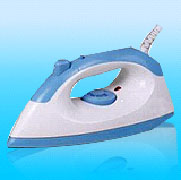
Electric Iron |
|
Electric iron
- Select iron boxes with automatic temperature cutoff.
- Use appropriate regulator position for ironing.
- Do not put more water on clothes while ironing.
- Do not iron
wet clothes.
|
| |
|
|
| |
|
Fans
- Replace conventional regulators with electronic regulators
for ceiling fans.
- Install exhaust fans at a higher elevation
than ceiling fans.
|
| |
|
|

Refrigerator |
|
Refrigerator
- Do not open door frequently.
- Set thermostat in medium cooling position.
- Keep adequate space from wall.
- Do not overload
the refrigerator.
- Defrost your refrigerator regularly.
- Regularly defrost manual-defrost refrigerators and freezers;
frost buildup increases the amount of energy needed to keep the
motor running.
- Leave enough space between your refrigerator and the walls so
that air can easily circulate around the refrigerator.
- Don't keep your refrigerator or freezer too cold.
- Make sure your refrigerator door seals are airtight.
- Cover liquids and wrap foods stored in the refrigerator.
- Uncovered
foods release moisture and make the compressor work harder.
- Do not open the doors of the refrigerators frequently.
- Don't leave the fridge door open for longer
than necessary, as cold air will escape.
- Use smaller cabinets for storing frequently used items.
- Avoid putting hot or warm food straight into the fridge.
|
| |
|
|
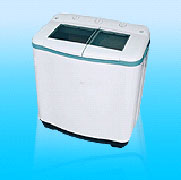
Washing Machine |
|
Washing Machine
- Use after 10 PM or before 10 AM.
- Run washing machine only with full load.
- Use the shortest cycle time.
- Always wash only with full loads.
- Use optimal quantity of water.
- Use timer facility to save energy.
- Use the correct amount of detergent.
- Use hot water only for very dirty clothes.
- Always use cold water in the rinse cycle.
- Prefer natural drying over electric dryers.
|
| |
|
|
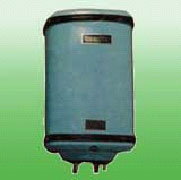
Geyser |
|
Geyser
- Use before 10 AM.
- Switch off when not required.
- Reduce thermostat setting from 60º to 50º C.
- Use Solar Water Heater - a good replacement for a electric water
heater.
|
| |
|
|
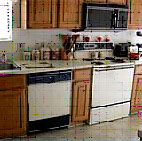
Kitchen Appliances |
|
Mixers
- Avoid dry grinding in your food processors ( mixers and grinders)
as it takes longer time than liquid grinding.
|
| |
|
|
| |
|
Microwave Ovens
- Consumes 50 % less energy than conventional electric / gas stoves.
- Do not bake large food items.
- Unless you're baking breads or pastries, you
may not even need to preheat.
- Don't open the oven door too often to check food condition
as each opening leads to a temperature drop of 25º C.
|
| |
|
|
| |
|
Electric Stove
- Turn off electric stoves several minutes before the specified cooking
time.
- Use flat-bottomed pans that make full contact with the cooking
coil.
|
| |
|
|
| |
|
Gas Stove
- When cooking on a gas burner, use moderate flame settings
to conserve LPG.
- Remember that a blue flame means your gas stove is operating
efficiently.
- Yellowish flame is an indicator that the burner needs cleaning.
- Use pressure cookers as much as possible.
- Use lids to cover the pans while cooking.
- Bring items taken out of refrigerators (like vegetable, milk
etc.) to room temperature before placing on the gas stove for
heating.
|
| |
|
|
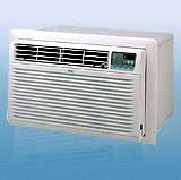
Air Conditioning |
|
Air Conditioning
- Ensure proper sealing of doors and windows.
- Set thermostat at 24º C for optimum cooling.
- Clean AC filter every month.
- Use film / tinted glass on windows.
- Prefer air conditioners having automatic temperature cut off.
- Keep regulators at "low cool" position.
- Operate the ceiling fan in conjunction with
your window air conditioner to spread the cooled air more effectively
throughout the room and operate the air conditioner at higher
temperature.
- Seal the doors and windows properly.
- Leave enough space between your air conditioner and the walls
to allow better air circulation.
- A roof garden can reduce the load on Air Conditioner.
- Use windows with sun films / curtains.
- Set your thermostat as high as comfortably possible in the
summer. The less difference between the indoor and outdoor temperatures,
the lower will be energy consumption.
- Don't set your thermostat at a colder setting
than normal when you turn on your air conditioner. It will not
cool your home any faster and could result in excessive cooling.
- Don't place lamps or TV sets near your air-conditioning thermostat.
The thermostat senses heat from these appliances, which can cause
the air conditioner to run longer than necessary.
- Plant trees or shrubs to shade air-conditioning units but
not to block the airflow. A unit operating in the shade uses
as much as 10% less electricity than the same one operating in
the sun
By following these simple hints one can save energy to a large
extent. |
| |
|
|